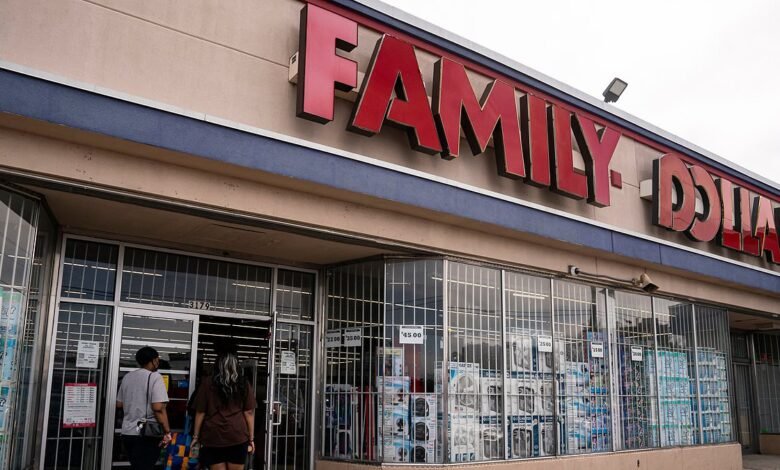99 Cents Only and Family Dollar to shutter hundreds of stores in ‘retail apocalypse’

- Inflation and a retail contraction across America wreaks havoc on dollar stores
As inflation bears down on retailers and consumers alike, America’s shopping habits increasingly don’t support the existence of so-called dollar stores.
There’s no denying that inflation hitting a 40-year high two years ago has made it almost impossible for dollar stores to make profit selling items for $1 or less.
For years, dollar stores haven’t truly been dollar stores, with many of them selling items for far more than $1. As recently as April, California-based 99 Cents Only announced it would be closing all 371 locations after being in business for decades.
KTLA reports that 99 Cents Only – which has locations in California, Texas, Arizona and Nevada – used to only sell items costing 99 cents or less. Over time, that morphed into most of their items costing 99 cents or less, with a decent amount of their stock costing more than that.
Dollar Tree, which owns Family Dollar, is also struggling and was forced to close nearly 1,000 stores in March. Around 600 Family Dollars will close in the first half of this year, and about 370 of its flagship Dollar Tree locations will shutter over the next several years.
The U.S. Sun calls this phenomenon of mass store closures the ‘retail apocalypse.’
The priciest item in Dollar Tree is now $7, with its CEO saying the company is aiming to sell products for $10 in the coming years.
Despite the trouble Dollar Tree and 99 Cents Only are having, rival Dollar General is saying it continues to grow.
The discount retailer opened its 20,000th store in February 2024.
But like any other grocer or retail store, Dollar General sells plenty of items for much more than a dollar.
Five Below, which has over 1,500 stores in 43 states, has raised the cheap red line to $5 as its name suggests.
Even Five Below is experimenting with having higher priced items in separate areas within 250 of its stores, Retail Dive reported in January.
These moves from discount retailers to raise prices could very well be a reaction to stores such as JC Penney and Sears, which sold items cheaper than a department store like Macy’s, slowly going under for the past several years.
Yet all manner of retail stores, discount and not, have been facing the crunch, including Walmart, Bed Bath & Beyond and Nike.
Big box retailers such as Target and Walmart are taking the opposite approach to true discount stores which have resorted to raising prices.
Target, for example, is lowering prices on at least 5,000 frequently bought products ranging from milk to diapers.
When asked if dollar stores would ever come back, KTLA consumer reporter David Lazarus wasn’t too hopeful.
‘Discount stores are reflective of a different time – and a different economy,’ he said. ‘For the moment, it’s a rough time to be a bargain merchant.’
Source link




